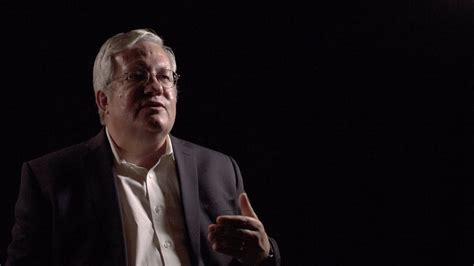A Quote by Shoshana Zuboff
Every century or so, fundamental changes in the nature of consumption create new demand patterns that existing enterprises can't meet.
Quote Topics
Related Quotes
Developed and benefited from the unsustainable patterns of production and consumption which have produced our present dilemma. It is clear that current lifestyles and consumption patterns of the affluent middle class-involving high meat intake, consumption of large amounts of frozen and convenience foods, use of fossil fuels, appliances, home and work-place air-conditioning, and suburban housing-are not sustainable. A shift is necessary toward lifestyles less geared to environmentally damaging consumption patterns.
Sustainable production and consumption matter immensely to the people I meet every day as head of the International Trade Centre, which works with small and medium-sized enterprises (SMEs) to help them boost growth and job creation by improving their competitiveness and connecting to international markets.
Mental patterns do not originate out of inorganic nature. They originate out of society, which originates out of inorganic nature. And, as anthropologists know so well, what a mind thinks is as dominated by biological patterns as social patterns are dominated by biological patterns and as biological patterns are dominated by inorganic patterns. There is no direct scientific connection between mind and matter. As the atomic scientist, Niels Bohr, said, "We are suspended in language." Our intellectual description of nature is always culturally derived.
I think we'll start defining wealth and success differently and develop new approaches to consumption. Things that have always signified wealth and security - home ownership, new cars, luxury goods - have become a burden for many people and will be replaced by more experiential consumption like travel and recreation, self-improvement, and so on. By divesting themselves of certain big-ticket possessions that have been keeping them tied down, people will gain a new freedom to live more meaningful lives. Changes in consumption and lifestyle are key to Great Resets.
It was only in the late nineteenth century and then the twentieth century, with the maturation of consumer capitalism, that a shift was made toward the cultivation of unbounded desire. We must appreciate this to realize that late modern consumption, consumption as we now know it, is not fundamentally about materialism or the consumption of physical goods. Affluence and consumer-oriented capitalism have moved us well beyond the undeniable efficiencies and benefits of refrigeration and indoor plumbing.
It's time to fundamentally change the way that we do business in Washington. To help build a new foundation for the 21st century, we need to reform our government so that it is more efficient, more transparent, and more creative. That will demand new thinking and a new sense of responsibility for every dollar that is spent.
There are only patterns, patterns on top of patterns, patterns that affect other patterns. Patterns hidden by patterns. Patterns within patterns. If you watch close, history does nothing but repeat itself. What we call chaos is just patterns we haven't recognized. What we call random is just patterns we can't decipher. what we can't understand we call nonsense. What we can't read we call gibberish. There is no free will. There are no variables.



































